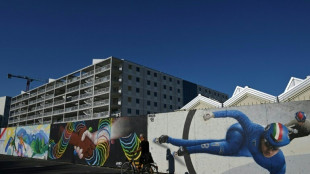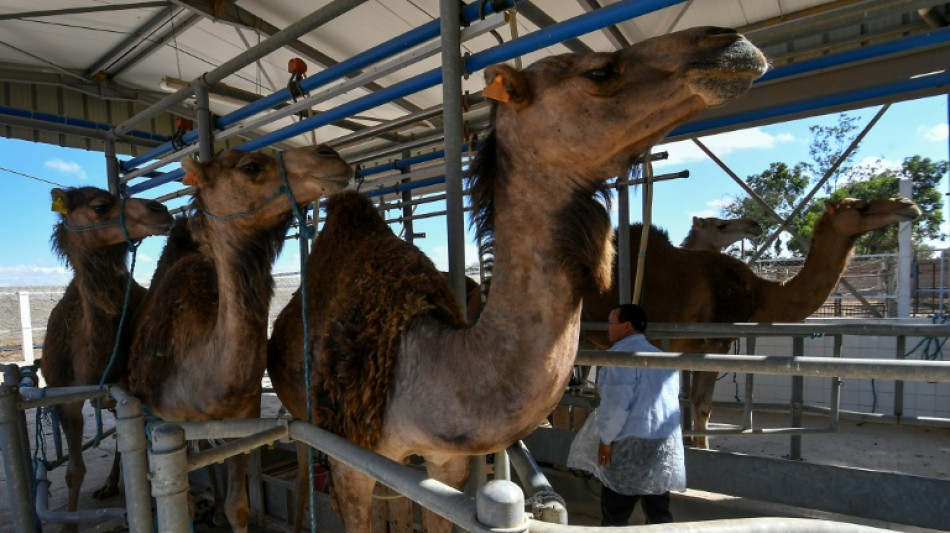
-
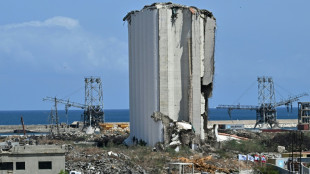 Five years after Beirut port blast, Lebanese demand justice
Five years after Beirut port blast, Lebanese demand justice
-
Stella Rimington, first woman to lead UK's MI5 dies at 90
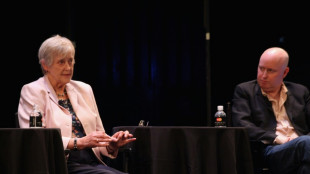
-
 Trump admin to reinstall Confederate statue toppled by protesters
Trump admin to reinstall Confederate statue toppled by protesters
-
Rybakina advances to WTA Canadian Open semis

-
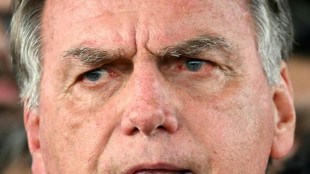 Brazilian judge places ex-president Bolsonaro under house arrest
Brazilian judge places ex-president Bolsonaro under house arrest
-
Brazil judge places ex-president Bolsonaro under house arrest
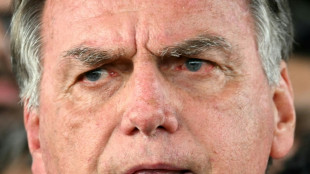
-
 NGOs caught between juntas and jihadists in turbulent Sahel
NGOs caught between juntas and jihadists in turbulent Sahel
-
NBA Spurs agree to four-year extension with Fox: reports

-
 Stocks mostly rebound on US interest rate cut bets
Stocks mostly rebound on US interest rate cut bets
-
Boeing defense workers launch strike over contract dispute

-
 Grand Canyon fire rages, one month on
Grand Canyon fire rages, one month on
-
Djokovic withdraws from ATP Cincinnati Masters
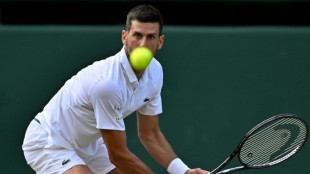
-
 Brazil's Paixao promises 'big things' at Marseille unveiling
Brazil's Paixao promises 'big things' at Marseille unveiling
-
Shubman Gill: India's elegant captain

-
 Trump says to name new labor statistics chief this week
Trump says to name new labor statistics chief this week
-
England v India: Three talking points

-
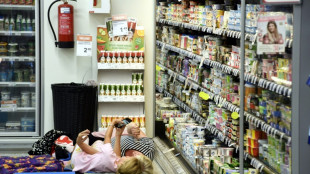 Exceptional Nordic heatwave stumps tourists seeking shade
Exceptional Nordic heatwave stumps tourists seeking shade
-
'Musical cocoon': Polish mountain town hosts Chopin fest

-
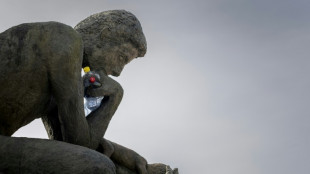 A 'Thinker' drowns in plastic garbage as UN treaty talks open
A 'Thinker' drowns in plastic garbage as UN treaty talks open
-
India's Siraj 'woke up believing' ahead of Test heroics

-
 Israeli PM says to brief army on Gaza war plan
Israeli PM says to brief army on Gaza war plan
-
Frustrated Stokes refuses to blame Brook for England collapse

-
 Moscow awaits 'important' Trump envoy visit before sanctions deadline
Moscow awaits 'important' Trump envoy visit before sanctions deadline
-
Schick extends Bayer Leverkusen contract until 2030

-
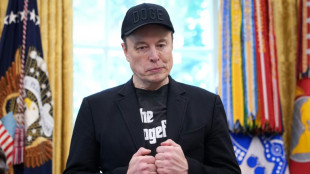 Tesla approves $29 bn in shares to Musk as court case rumbles on
Tesla approves $29 bn in shares to Musk as court case rumbles on
-
Stocks rebound on US rate cut bets
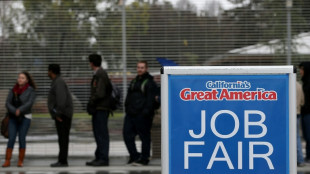
-
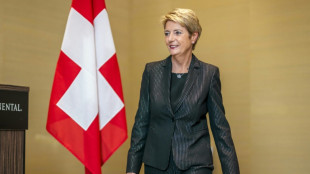 Swiss eye 'more attractive' offer for Trump after tariff shock
Swiss eye 'more attractive' offer for Trump after tariff shock
-
Trump says will name new economics data official this week

-
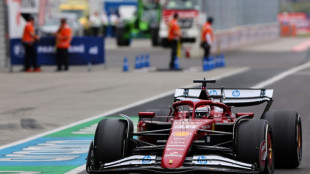 Three things we learned from the Hungarian Grand Prix
Three things we learned from the Hungarian Grand Prix
-
Lions hooker Sheehan banned over Lynagh incident

-
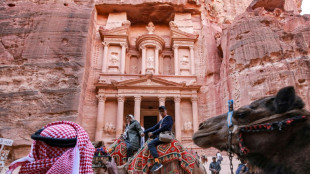 Jordan sees tourism slump over Gaza war
Jordan sees tourism slump over Gaza war
-
China's Baidu to deploy robotaxis on rideshare app Lyft

-
 Israel wants world attention on hostages held in Gaza
Israel wants world attention on hostages held in Gaza
-
Pacific algae invade Algeria beaches, pushing humans and fish away
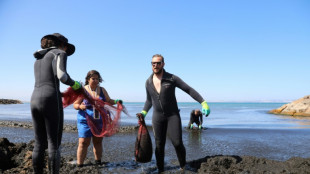
-
 Siraj stars as India beat England by six runs in fifth-Test thriller
Siraj stars as India beat England by six runs in fifth-Test thriller
-
Stocks mostly rise as traders boost US rate cut bets
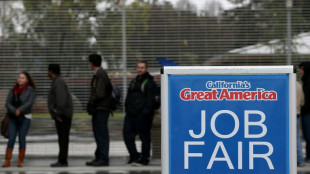
-
 S.Africa eyes new markets after US tariffs: president
S.Africa eyes new markets after US tariffs: president
-
Trump envoy's visit will be 'important', Moscow says

-
 BP makes largest oil, gas discovery in 25 years off Brazil
BP makes largest oil, gas discovery in 25 years off Brazil
-
South Korea removing loudspeakers on border with North
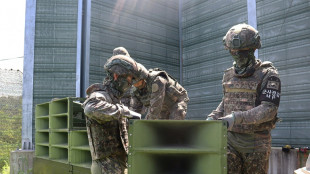
-
 Italy fines fast-fashion giant Shein for 'green' claims
Italy fines fast-fashion giant Shein for 'green' claims
-
Shares in UK banks jump after car loan court ruling

-
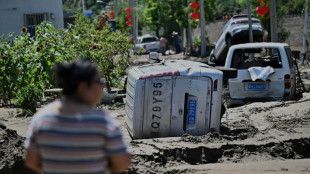 Beijing issues new storm warning after deadly floods
Beijing issues new storm warning after deadly floods
-
Most markets rise as traders US data boosts rate cut bets
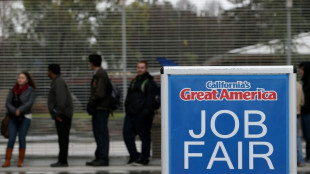
-
 17 heat records broken in Japan
17 heat records broken in Japan
-
Most markets rise as traders weigh tariffs, US jobs
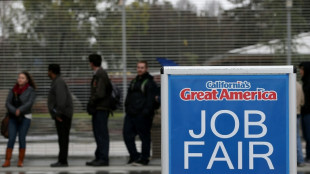
-
 Tycoon who brought F1 to Singapore pleads guilty in graft case
Tycoon who brought F1 to Singapore pleads guilty in graft case
-
Australian police charge Chinese national with 'foreign interference'
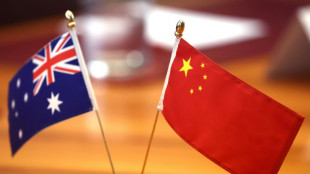
-
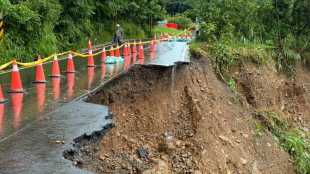 Torrential rain in Taiwan kills four over past week
Torrential rain in Taiwan kills four over past week
-
Rwanda bees being wiped out by pesticides
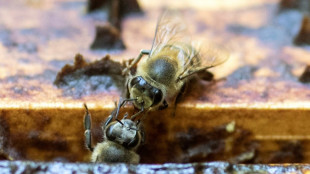
| RBGPF | 0.08% | 75 | $ | |
| SCU | 0% | 12.72 | $ | |
| CMSD | 1.18% | 23.63 | $ | |
| CMSC | 0.87% | 23.07 | $ | |
| JRI | 0.76% | 13.2 | $ | |
| NGG | 1.14% | 72.65 | $ | |
| BCE | -1.12% | 23.31 | $ | |
| BCC | -0.77% | 82.71 | $ | |
| SCS | 38.6% | 16.58 | $ | |
| RIO | 0.58% | 60 | $ | |
| RELX | 0.73% | 51.97 | $ | |
| RYCEF | 2.07% | 14.5 | $ | |
| GSK | 0.32% | 37.68 | $ | |
| AZN | 0.86% | 74.59 | $ | |
| VOD | 0.72% | 11.04 | $ | |
| BTI | 2.16% | 55.55 | $ | |
| BP | 2.28% | 32.49 | $ |

In Tunisia's arid south, camel milk offers hope for economic gain
Deep in Tunisia's desert south, camels stride toward humming milking machines. Their milk is at the heart of a women-led project promising an economic lifeline for disadvantaged communities.
Spearheading this effort is 32-year-old Latifa Frifita, who launched Tunisia's first, and so far only, camel milk pasteurisation unit two years ago in Medenine.
The unit is based on research by Amel Sboui, 45, a senior biochemist at the Institute of Arid Regions, who succeeded in patenting a pasteurisation method that preserves camel milk's "nutritional and therapeutic qualities" while extending its shelf life to two weeks.
Containing up to five times more iron than cow's milk, camel milk is non-allergenic and some studies have suggested that it has immune-boosting and anti-inflammatory properties.
Pasteurisation of camel milk is essential to bringing it to wider markets because the milk is highly perishable.
Sboui and her lab of ten researchers -- eight of them women -- also conducted clinical trials at the regional hospital which showed that consuming the milk could help diabetic patients reduce their medication doses by up to half in some cases.
- Growing demand -
Jobs and investment in southern Tunisia are scarce, yet entrepreneur Frifita has pinned her hopes on a product long undervalued by local herders and is working to change their minds.
At first, she said she faced many challenges when trying to convince the herders to sell milk instead of meat -- a far more common commodity.
"They didn't see the point," she said while testing a fresh sample of the milk, wearing a hairnet. "They usually keep it for themselves or give it away for free."
But, having built "a relationship of trust" and with demand for the product growing, Frifita said she planned to reach further agreements with breeders.
Frifita, who holds a master's degree in food technologies, began sketching out her idea in 2016, but it was not until 2023 that she launched ChameLait with the support of the Institute, which provided her startup with premises to operate.
Today, she is happy to "promote a local product that defines southern Tunisia", where dromedaries are a fixture of the landscape, she said.
A mother of a two-year-old girl, she said she chose to "stay and invest in her region" rather than following her sports coach husband to the Middle East.
The station in Chenchou, about 100 kilometres (60 miles) south of Medenine, also serves as a training site for herders to learn mechanised milking, which yields up to seven litres a day compared to just two litres with traditional hand milking.
Frifita now runs the business alongside two other women -- one of them her older sister, Besma -- producing about 500 litres of pasteurised milk per week with the aim of doubling their output within two years.
ChameLait sells its products on demand and through a dozen retail shops, starting at 12 Tunisian dinars (about $4) per litre -- double the price Frifita pays breeders.
And the demand has been growing.
Amel Sboui, a 45-year-old senior researcher at the Institute, said this was largely due to word of mouth because of "people realising the milk's health benefits".
- 'A future in Tunisia' -
Beyond ChameLait and with more research needed, Sboui said he saw additional potential in freeze-dried camel milk, which could one day be sold "as a medicine, a functional food or food supplement".
The Institute views Frifita's business as a model enterprise.
Established under a programme by Tunisia's first president, Habib Bourguiba, the organisation aims to use scientific research to benefit the country's harshest and most neglected areas.
Medenine, with a population of a little over half a million, suffers from high levels of poverty and unemployment -- 22 and 19 percent respectively, compared to national averages of 15 and 16 percent.
These conditions have driven thousands of young people to leave, either for coastal cities or to seek opportunities abroad.
"Our primary goal, even as a research centre, is to create added value and jobs," said Moez Louhichi, head of innovation at the Institute.
By supporting "farmers and young entrepreneurs in promoting the region's resources, we encourage them to build their future here in Tunisia".
Since 2010, the Institute has helped launch 80 businesses, creating between 600 and 1,000 jobs, according to Louhichi.
A major camel milk collection centre is expected to open by the end of 2025 to expand mechanised milking in the region.
Louhichi said this would help the sector grow, turning the once-overlooked commodity into southern Tunisia's "white gold".
V.AbuAwwad--SF-PST

